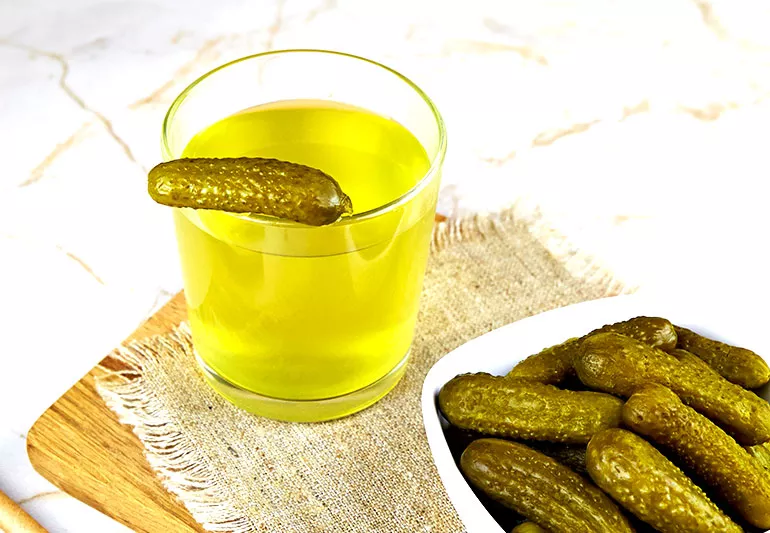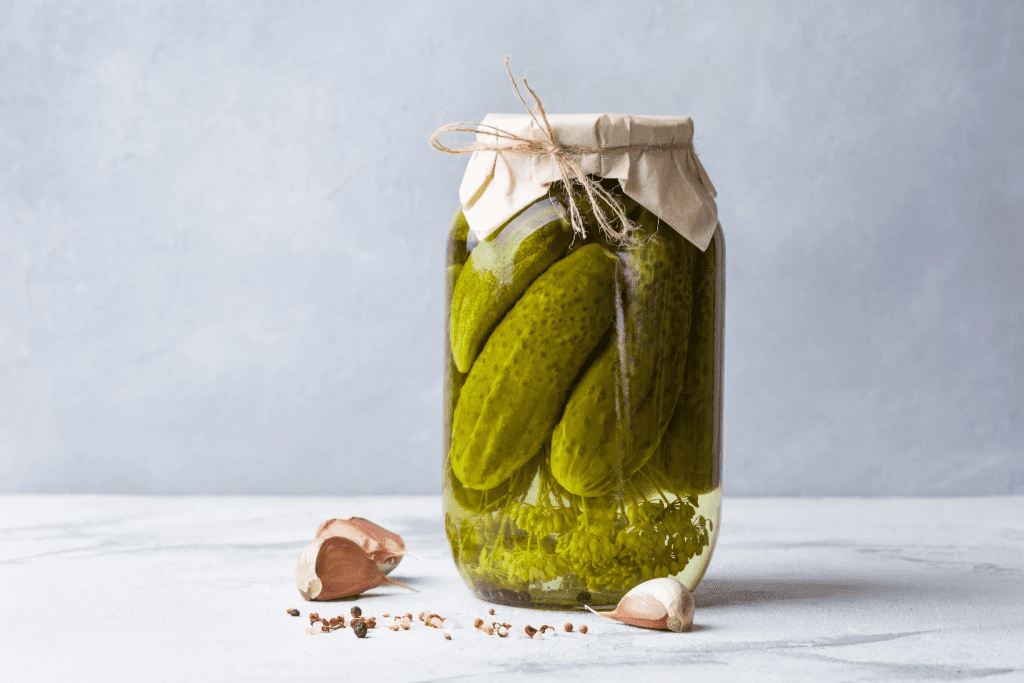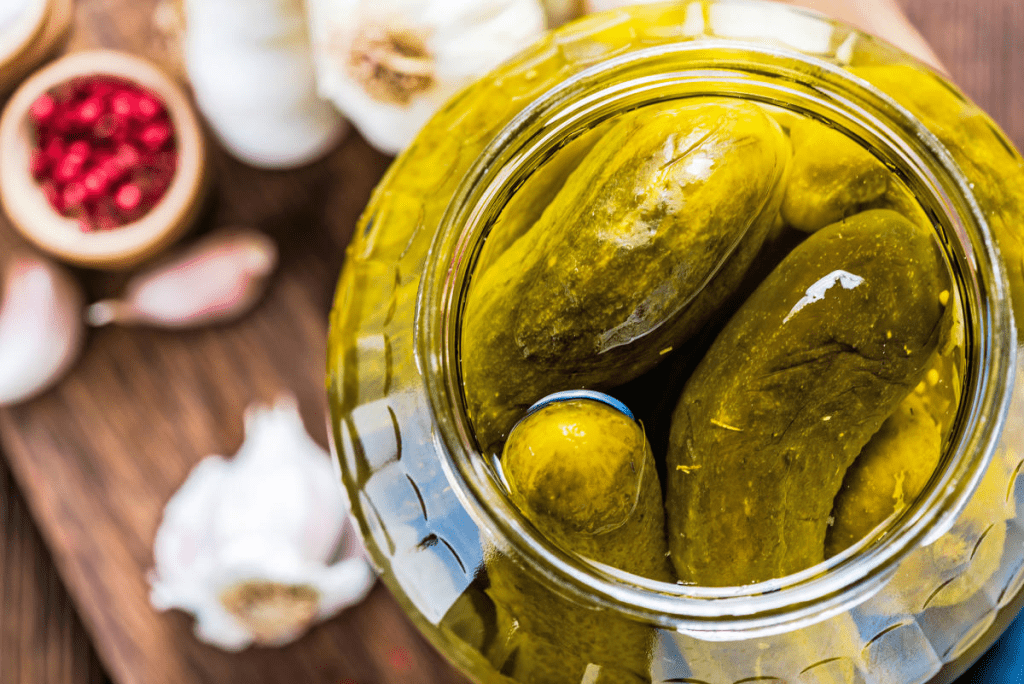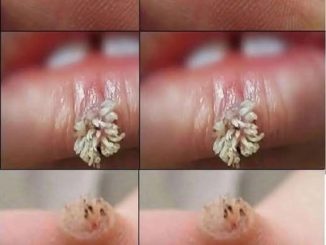Pickle juice—a tangy, briny liquid that’s often discarded—has recently found itself in the spotlight as a possible remedy for muscle cramps. It’s a curious claim that has captured the interest of athletes, fitness enthusiasts, and even casual exercisers. But is this just another old wives’ tale, or is there actual science backing this up? Let’s dive into the origins, science, and potential effectiveness of pickle juice to settle the debate once and for all.
What Are Muscle Cramps and Why Do They Happen?

Muscle cramps are those sudden, involuntary muscle contractions that can hit you when you least expect them. Whether you’re mid-workout, lounging on the couch, or even sound asleep, they often show up uninvited and bring a sharp, stabbing pain.
The most common culprits behind muscle cramps include:
- Dehydration: When your body is low on fluids, your muscles can contract unexpectedly.
- Electrolyte imbalances: Minerals like sodium, potassium, and magnesium are vital for muscle function, and any imbalance can lead to cramps.
- Overuse or fatigue: Intense physical activity can cause your muscles to rebel.
- Inadequate stretching: Skipping a warm-up or cool-down can leave your muscles stiff and prone to cramping.
Understanding these causes helps us evaluate how effective remedies like pickle juice might actually be.
The Folk Remedy Roots of Pickle Juice
Pickle juice as a remedy for muscle cramps isn’t exactly new. This quirky solution has its roots in folk medicine, where it was used to treat everything from indigestion to hangovers. Over generations, it became a go-to recommendation for those dealing with painful muscle spasms.
This wasn’t just by chance. Cultures that preserved vegetables in brine long recognized the potential health benefits of fermented foods. While the anecdotal evidence was strong, modern science only recently began to dig into whether pickle juice is truly effective or just an urban legend.
What Science Says About Pickle Juice for Muscle Cramps
So, is there any truth to the claim? Surprisingly, yes—though it’s still a work in progress. Recent studies have shown that athletes who consumed pickle juice experienced faster relief from muscle cramps compared to drinking plain water.
One theory is that the acetic acid in pickle juice (a component of vinegar) activates certain receptors in the mouth and throat, sending signals to the nervous system to stop the cramp. This idea, referred to as transient receptor potential (TRP) channel activation, suggests that it’s not about hydration or electrolyte replacement but rather a neurological reflex.
However, while these studies are promising, they aren’t comprehensive enough to declare pickle juice a miracle cure. More research is needed to fully understand its mechanisms and long-term effectiveness.
Electrolytes in Pickle Juice: The Real MVPs?

Another aspect worth exploring is the electrolyte content in pickle juice. Sodium and potassium, two key electrolytes found in the briny liquid, play essential roles in muscle function.
- Sodium: Helps maintain fluid balance and muscle contractions.
- Potassium: Works alongside sodium to support muscle function and reduce cramping.
While it’s true that pickle juice contains these electrolytes, the amounts are relatively modest compared to sports drinks or specialized electrolyte supplements. So, while it might help in a pinch, it’s not necessarily the best option for full electrolyte replenishment after intense exercise.
The Role of Vinegar: A Surprising Ally
Vinegar is a key ingredient in pickle juice and might be the unsung hero when it comes to combating muscle cramps. The acetic acid in vinegar is thought to stimulate the TRP channels mentioned earlier.
Here’s how it might work: when you drink pickle juice, the acetic acid triggers nerve receptors in your mouth and throat, which then send signals to your nervous system to “turn off” the cramp.
This process happens quickly, which could explain why many athletes report almost immediate relief after drinking pickle juice. While this is a fascinating concept, the science behind it is still in its early stages.
Comparing Pickle Juice to Other Muscle Cramp Remedies

Pickle juice isn’t the only player in the game when it comes to relieving muscle cramps. Let’s see how it stacks up against other common remedies:
- Stretching: Stretching the affected muscle is a tried-and-true method for easing cramps. It’s effective, though not as rapid as pickle juice.
- Hydration: Drinking water helps prevent cramps caused by dehydration, but it doesn’t offer the immediate relief pickle juice might provide.
- Electrolyte supplements: These can be tailored to your needs and are excellent for long-term prevention, but they don’t work as quickly as pickle juice in the moment.
While pickle juice has its advantages, it’s best used as a quick fix rather than a standalone solution. For long-term prevention, a combination of hydration, stretching, and proper nutrition is essential.
Are There Risks to Drinking Pickle Juice?
As intriguing as pickle juice might sound, it’s not without its downsides.
- High sodium content: Pickle juice is loaded with salt, which can be problematic for people with high blood pressure or those on low-sodium diets.
- Acidity: The vinegar in pickle juice can cause heartburn or stomach irritation in some individuals.
- Not a long-term solution: While it might stop a cramp in its tracks, it doesn’t address the root causes, like dehydration or electrolyte imbalances.
As with any remedy, moderation is key. If you’re considering using pickle juice regularly, it’s a good idea to consult with a healthcare professional, especially if you have underlying health conditions.
What Do the Experts Say?
Opinions among experts are divided. Some sports nutritionists acknowledge the potential benefits of pickle juice but caution against relying on it exclusively. They emphasize that a well-rounded approach—including a balanced diet, adequate hydration, and proper training—is crucial for preventing cramps in the first place.
Others point out that while pickle juice may offer quick relief, its high sodium content and acidic nature make it less ideal for regular use. Still, they agree that the rapid relief it provides makes it worth considering in specific scenarios, like during intense athletic events.
Conclusion: Is Pickle Juice the Real Deal?

So, is pickle juice a cure-all for muscle cramps? Not quite. While there is some scientific evidence supporting its effectiveness, particularly for rapid relief, it’s not conclusive enough to label it as a guaranteed remedy.
Think of pickle juice as a tool in your cramp-fighting toolkit—one that works best when combined with other proven methods like stretching, hydration, and balanced nutrition. If you enjoy the tangy taste and it works for you, great! Just remember to use it in moderation and alongside other preventative strategies.
At the end of the day, whether you’re an athlete or someone who occasionally battles muscle cramps, it’s all about finding what works for your body. And hey, if pickle juice is your secret weapon, who are we to judge? Keep sipping and stay cramp-free!


